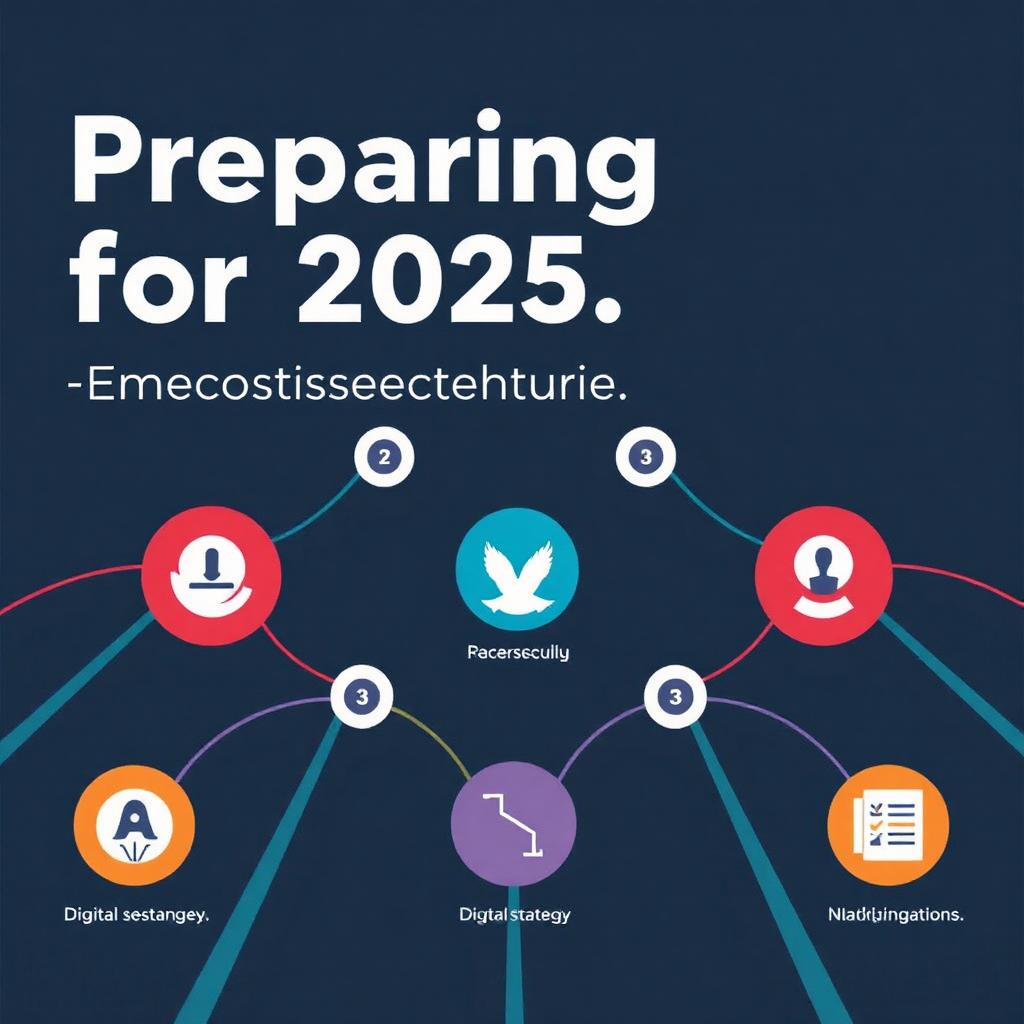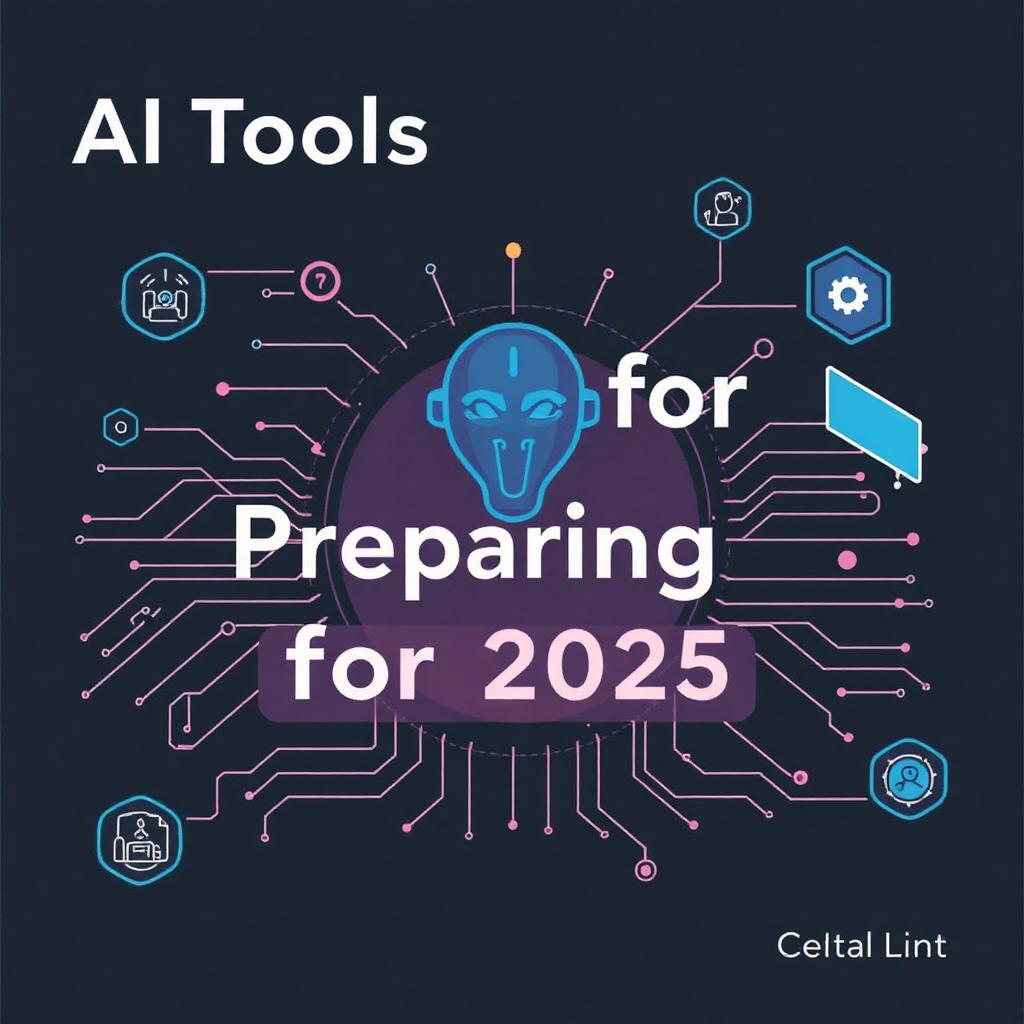Preparing for 2025 is essential for businesses aiming to future-proof their digital strategy. Leveraging advanced AI tools and embracing new trends can ensure operational efficiency and lasting competitiveness

Table of Contents
Understanding the Landscape: The Role of Technology
To future-proof your digital strategy, it’s crucial to stay informed about the latest digital trends and technological shifts. The rapid pace of innovation means that what works today may not be effective tomorrow. For instance, a recent report from McKinsey highlighted that companies investing in digital transformation could expect a 20-30% increase in efficiency and productivity within three years. Businesses that adapt early can avoid the risk of obsolescence, ensuring they maintain relevance in a competitive landscape.
One of the key trends shaping the future is the rise of Artificial Intelligence (AI). AI is no longer just a buzzword; it has become an integral part of business operations across various sectors. According to a report by Gartner, 37% of organizations have implemented AI in some form, reflecting a significant increase from previous years. AI technologies enhance decision-making processes, improve customer experiences, and streamline operations. For example, IBM’s Watson is now being used in healthcare for predictive analytics, providing insights that allow healthcare providers to offer tailored treatments based on individual patient data.
The Impact of the Top 5 AI Tools on Business Operations

AI is not just enhancing traditional processes but is also creating new opportunities. A case study from the insurance industry illustrates this point. Progressive Insurance employs AI to assess claims more efficiently. By using AI algorithms to analyze data from past claims, they can determine the likelihood of fraud and streamline the claims approval process. This not only reduces operational costs but also improves customer satisfaction by expediting claim resolutions. As AI technology continues to evolve, companies that embrace it will be better positioned to meet the demands of a digital-first market.
Prioritizing Data Privacy and Security
As technology advances, so does the importance of a privacy-first approach. With data privacy regulations tightening worldwide, transparency and secure data handling are now essential components of any digital strategy. According to a study by Cisco, 86% of consumers are concerned about data privacy, and 78% are more likely to trust a company that prioritizes data privacy. This statistic underscores the importance of building trust with customers.

To prioritize data security, businesses must implement robust data protection measures. This includes encrypting sensitive information and using secure networks for data transmission. For instance, a notable case involved Equifax, which faced a massive data breach affecting over 147 million people. The fallout from this incident demonstrated the severe consequences of inadequate data protection, leading to significant financial losses and reputational damage. By prioritizing data privacy and security, businesses build a solid foundation for future-proofing their digital strategies.
Best Practices for Data Security
Businesses should adopt best practices for data security, including regular audits, employee training on data handling, and the use of two-factor authentication. Additionally, implementing a comprehensive data management policy can help ensure compliance with regulations like the General Data Protection Regulation (GDPR) and the California Consumer Privacy Act (CCPA).
Embracing an Omnichannel Marketing Strategy
Another critical aspect of preparing for 2025 is adopting an omnichannel marketing strategy. Today’s customers interact with brands across multiple channels, from social media to websites to physical stores. According to research by the Harvard Business Review, companies with robust omnichannel customer engagement retain an average of 89% of their customers, compared to just 33% for companies with weak engagement. This statistic highlights the importance of creating a seamless customer experience across platforms.
Implementing Omnichannel Strategies
To implement an effective omnichannel strategy, businesses must focus on unified brand messaging and gather data from various channels to better understand customer preferences. For example, Starbucks has successfully utilized an omnichannel approach by integrating its mobile app with in-store experiences. Customers can order ahead, collect rewards, and receive personalized offers based on their purchasing history. This strategy not only enhances customer experience but also drives sales and customer loyalty.
Optimizing for Voice Search and Mobile-First Indexing
With the rise of voice-activated devices and mobile browsing, optimizing for voice search and mobile-first indexing is crucial. According to a report by Statista, the number of voice assistant users worldwide is projected to reach 8.4 billion by 2024. This rapid growth underscores the importance of ensuring your content is voice-search and mobile-friendly.
Strategies for Voice Search Optimization
To optimize for voice search, businesses should focus on using conversational keywords and structuring their content to answer common questions directly. For instance, creating FAQ sections or using schema markup can enhance visibility in voice search results. Additionally, ensuring that your website is mobile-responsive and loads quickly can improve user experience and search engine rankings.
The Importance of High-Quality Content and User Experience
High-quality content and a seamless user experience are vital to future-proofing your digital strategy. Google’s algorithms prioritize content that provides real value, so crafting engaging, informative, and user-friendly content is key to maintaining a competitive edge. According to HubSpot, businesses that prioritize blogging are 13 times more likely to achieve a positive ROI.
Creating Evergreen Content
To enhance content strategy, focus on creating evergreen topics that offer long-term value, helping to rank for relevant topics consistently. For instance, articles that provide insights into industry trends or actionable tips for customers can generate traffic over time. Additionally, incorporating multimedia elements like videos and infographics can improve engagement and retention rates.
Enhancing User Experience
Prioritizing user-centric design ensures websites are visually appealing, easy to navigate, and responsive across devices. For example, Amazon continuously refines its user experience based on customer feedback, making it easy for users to find products and make purchases. Such investments in user experience lead to higher conversion rates and increased customer loyalty.
Ethical Considerations in AI Implementation
As AI becomes integral to digital strategies, ethical considerations around its use are more important than ever. Businesses need to disclose how they use AI on their platforms, such as in chatbots or personalized recommendations. According to a survey by PwC, 79% of consumers are concerned about the ethical implications of AI. Ensuring fair data use and adhering to ethical and legal standards is crucial for building trust with customers.
Building Trust with Ethical AI Practices
By focusing on ethical AI practices, businesses can avoid potential issues while maintaining customer loyalty, a critical component of a future-proof digital strategy. Companies like Microsoft have established ethical AI guidelines that prioritize fairness, accountability, and transparency. These guidelines help ensure responsible AI use while fostering public trust in their technology.
Investing in Robust Data Privacy and Security Plans
Investing in a robust data privacy and security plan cannot be overlooked. Customers and regulators expect transparency and integrity from businesses, and failure to comply can lead to severe consequences, both legally and reputationally. For instance, the fallout from the Facebook-Cambridge Analytica scandal highlighted the repercussions of mishandling user data, leading to a significant drop in user trust.
Implementing Privacy-First Marketing Techniques
To avoid similar pitfalls, businesses should adopt privacy-first marketing techniques, ensuring that customer data is handled responsibly and transparently. This includes obtaining explicit consent from users for data collection and providing clear options for opting out. Additionally, businesses should invest in cybersecurity measures, such as firewalls and intrusion detection systems, to protect customer data from breaches.
Leveraging AI for Operational Efficiency
Artificial Intelligence offers various solutions for businesses looking to streamline operations and improve customer experiences. Integrating AI into your strategy is essential for adapting to a digital-first landscape. For example, Netflix uses AI algorithms to recommend content to users based on their viewing habits, significantly enhancing user engagement and retention.
Case Study: Chatbots for Customer Support
Implementing AI-driven chatbots can enhance customer support efficiency by providing instant responses and resolving common issues without human intervention. A report by Juniper Research indicates that chatbots are expected to save businesses $8 billion annually by 2022. By integrating chatbots into customer service operations, businesses can reduce response times and improve overall customer satisfaction.
Predictive Analytics for Informed Decision-Making
Additionally, AI-driven predictive analytics helps businesses forecast customer behavior and trends, enabling data-backed decision-making that enhances overall strategy outcomes. For instance, Target uses predictive analytics to anticipate customer needs, allowing the company to send personalized offers and recommendations based on shopping patterns. This strategy not only drives sales but also enhances customer loyalty.
Conclusion: Building a Resilient Future-Proof Digital Strategy
Preparing for 2025 requires a digital strategy that’s adaptable, customer-focused, and technologically advanced. By focusing on key areas such as data privacy, AI-driven efficiency, omnichannel marketing, voice search optimization, content quality, and ethical AI practices, your business can build a future-proof digital strategy that keeps pace with the evolving digital landscape.
Starting now and implementing these practices will position your business to thrive in 2025 and beyond. As technology continues to evolve, businesses that prioritize adaptability and customer-centric approaches will stand out in the market, ensuring sustained growth and success




Pingback: 10 Key Resources for Learning Hacking Effectively - Seenaaf